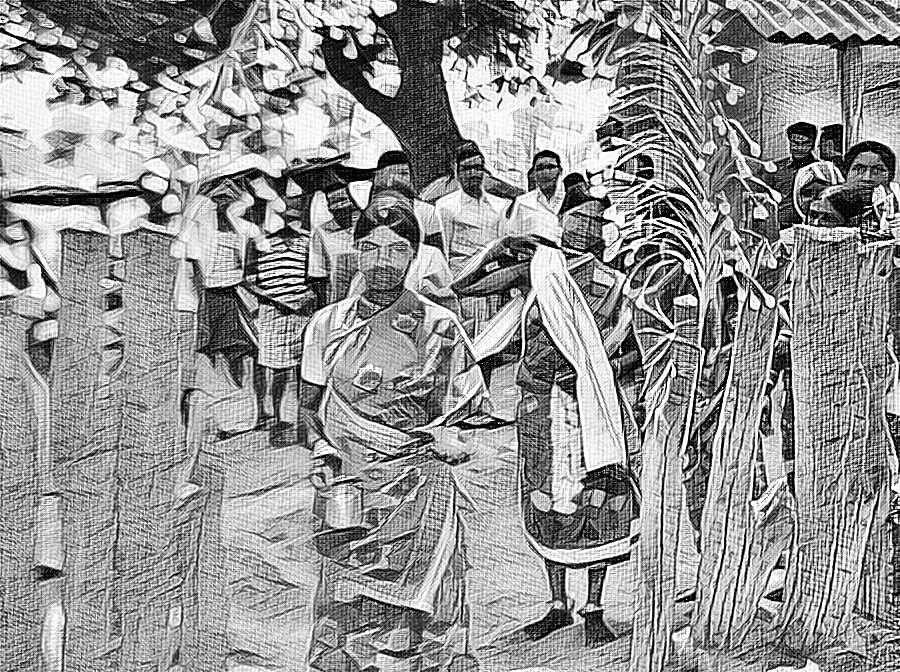Once EFICOR (an NGO) asked me to evaluate the project that they have implemented, it was on ‘Food Security and Livelihoods.’ The stakeholders were the poor and vulnerable Malto tribal community living in the Rajmahal area near the foothills of the Himalayas, Jharkhand State. Malto people are very cultured. They consider the guest as the most important person and give the highest respect. When I walked with the EFICOR team to one of the villages, they were ready with a garland of flowers, water in a container and a big plate. I learnt that they wanted to wash my feet with water. They asked me to place my feet on the big plate. I politely declined their request. Their simplicity and culture touched my heart. There must be historical reasons for this practice.
Once in a village near Kuntala waterfalls, Adilabad district, Telangana State, I went to the house of a tribal head. As I sat in the courtyard, saw that there were many country chickens around; I asked why he is having so many of them? He said that they are mostly for the guests or visitors, including the government officers who occasionally visit their village. Their way of respecting the guests could be another reason for their exploitation historically by the so-called civilised people living in villages and towns.
While I was in the villages around Jagdhalpur, Chhattisgarh State, the local tribals greeted me with a garland of flowers. Almost in every tribal habitation that I have visited I observed great respect for guests as a distinct element of their culture. Also, I found them equally worshipping animate and inanimate objects in Nature.
Agricultural practices are predominantly need-based coupled with several customs and traditions of conservation. They have festivals to thank Nature, before consuming fruits, vegetables and crops. Nature’s kindness is acknowledged by them through their customs and practices. Sharing resources with others is still a common practice. Role of money is minimal in their economy. One could see them using the money, whatever little they have, in weekly shandy for buying products that come from outside. The tribals also respect petty traders, GCC employers, small contractors and government employees. Unfortunately, the outsiders have been displacing the tribals from their land and forest. Much of the conflicts in tribal areas would be resolved if the so-called civilised people from outside learnt to respect these tribals and should not exploit them.

Tribal women of Jagdhalpur welcoming with water and flowers




